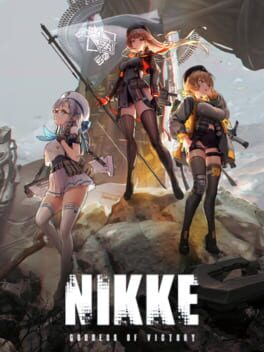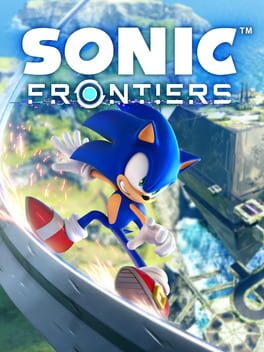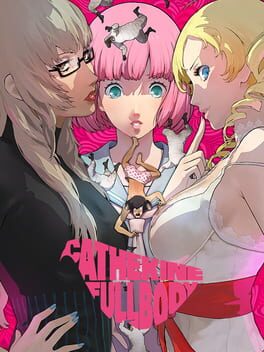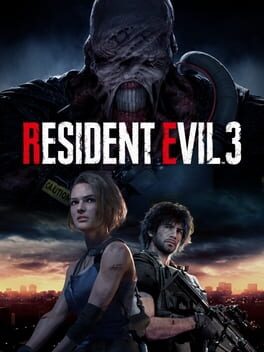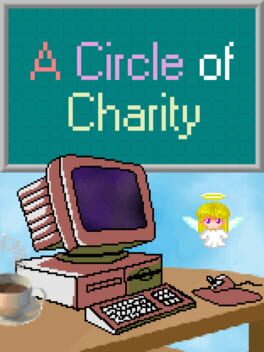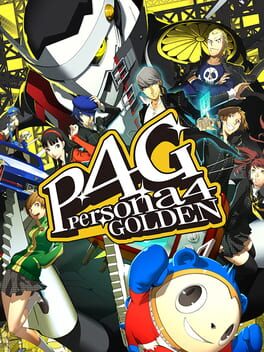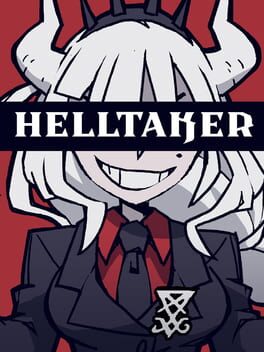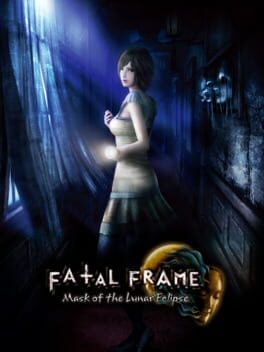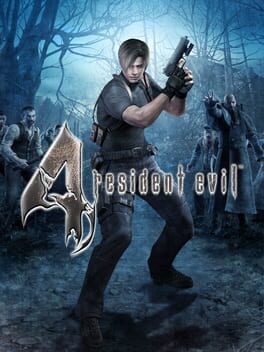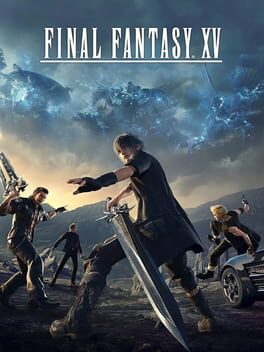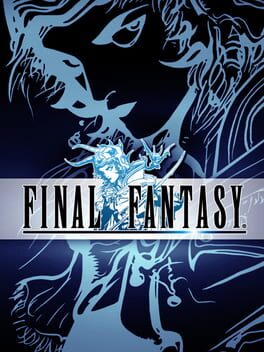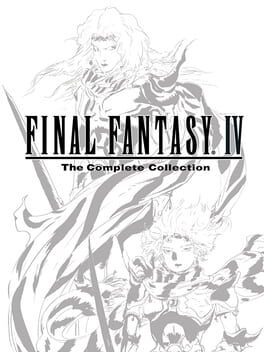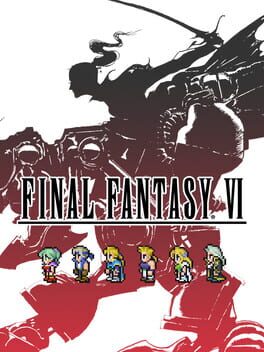CallingGestalt
2022
Sega: "I got a present for you. It's a little dirty. A little rough around the edges, just like your dear old ex con game company with a heart of gold."
Sonic Frontiers is a Video Game. A game that carries the sentiment I've missed of true soul, of wanting to just make something. And while all its parts don't fit together perfectly, they do mesh well enough that I enjoyed my time with this.
The open worlds are a bit weird and somewhat empty, but I also found it fun to worm my way through it and hit all the challenges. The combat isn't that complex, but it felt cool to figure out how to solve different enemies and bosses. The cyber space levels really aren't much, but when you're going through them for only a minute on a good run and seeing the various gimmicks they try, I don't mind that there are only 4 environments.
The game is 100% something that could have used more time and money, but with the game play and story I had fun with, I'm glad I played it and am anticipating how this will be iterated on.
Sonic Frontiers is a Video Game. A game that carries the sentiment I've missed of true soul, of wanting to just make something. And while all its parts don't fit together perfectly, they do mesh well enough that I enjoyed my time with this.
The open worlds are a bit weird and somewhat empty, but I also found it fun to worm my way through it and hit all the challenges. The combat isn't that complex, but it felt cool to figure out how to solve different enemies and bosses. The cyber space levels really aren't much, but when you're going through them for only a minute on a good run and seeing the various gimmicks they try, I don't mind that there are only 4 environments.
The game is 100% something that could have used more time and money, but with the game play and story I had fun with, I'm glad I played it and am anticipating how this will be iterated on.
2019
Gay People in my Atlus Game? More likely than you think.
The gameplay and many of the story elements and characters are neat prototype versions of what would appear in Persona 5. Like many of Studio Zero's (or P Studio's or w/e games, the art direction is striking.
The story and themes are a product of Atlus that I think have been majorly overlooked. For as much as people grouse about wanting a Persona game about adults, I never see anyone actually talk about this. While it is a bit simple, I think it's approach to talking about lifestyles and what people want to do is so open minded and determined in what it wants to say. You can like what and who you want as an adult, but you need to be committed to that decision and not loaf around.
Looking towards the new story that touches on queer characters, I think it was incredibly well done. It feels like a story written from a place of genuine effort in wanting to represent queer relationships and people coming to terms with their feelings. Sure, you could pick at some stuff of how exactly it was written and possible other things included in the game. At the same time, I feel like this wasn't made with malicious intent. Even the devs said they wanted to be more diverse in the mindset of creating this game.
The gameplay and many of the story elements and characters are neat prototype versions of what would appear in Persona 5. Like many of Studio Zero's (or P Studio's or w/e games, the art direction is striking.
The story and themes are a product of Atlus that I think have been majorly overlooked. For as much as people grouse about wanting a Persona game about adults, I never see anyone actually talk about this. While it is a bit simple, I think it's approach to talking about lifestyles and what people want to do is so open minded and determined in what it wants to say. You can like what and who you want as an adult, but you need to be committed to that decision and not loaf around.
Looking towards the new story that touches on queer characters, I think it was incredibly well done. It feels like a story written from a place of genuine effort in wanting to represent queer relationships and people coming to terms with their feelings. Sure, you could pick at some stuff of how exactly it was written and possible other things included in the game. At the same time, I feel like this wasn't made with malicious intent. Even the devs said they wanted to be more diverse in the mindset of creating this game.
2020
A return to form, even if it is a bit shaky in its approach.
Having played the remakes of RE 1-3, RE 7 feels a bit awkward by comparison in that it misses some design decisions of these entries that made them feel like a smoother experience. I can appreciate making crafting items more of a core part of the game play, but it also feels weird to have the materials laying about in this mansion and used by Joe Shmoe. The enemies I can appreciate also, but they do feel somewhat simple.
The story and location are cool in seeing how fast and bad a single place can degrade in a short amount of time. But also, there is a bit of weird vibe from playing this after RE:Make 2 and it having more fidelity to its environments and presentation.
Having played the remakes of RE 1-3, RE 7 feels a bit awkward by comparison in that it misses some design decisions of these entries that made them feel like a smoother experience. I can appreciate making crafting items more of a core part of the game play, but it also feels weird to have the materials laying about in this mansion and used by Joe Shmoe. The enemies I can appreciate also, but they do feel somewhat simple.
The story and location are cool in seeing how fast and bad a single place can degrade in a short amount of time. But also, there is a bit of weird vibe from playing this after RE:Make 2 and it having more fidelity to its environments and presentation.
2023
2020
In so many ways, Persona 4 Golden takes only a half step towards anything it seems like it wants to do.
The setting is meant to be a small, quiet, isolated town where the main hang out spot is the newly opened department store. This might seem like a cool place to set an RPG until it just so happens that an idol, celebrity detective, and a newsworthy politician and reporter also just so happened to be from this small town. And that the beach, the big city, and a ski resort are within spitting distance to the point that teenagers can hop on their scooters, hang out and be home in time for dinner.
The characters are mostly fine. The structure of the game fucks over the main cast a lot in that they get their character conflict displayed front and center before being pulled to the S.Link dimension where any and all development is delegated. Outside of that, much of the character interaction is limited to basic story progression and slice of life+comedy scenes where the girls can’t cook, Yosuke/Teddie try to pull a fast one and get punished for it, and/or Kanji gets called gay.
The social links for this game are split between your main party and the citizens of Inaba, and it honestly feels like not that much happens across the lot of them. The Hanged Man and Death S.Links got to me as stories of people dealing with death, but a lot of the rest are just there for me. I’m sure a lot of these might have been good for a lot of people to hear, but overall I can’t think of much that actually was said other than “follow your dreams” and “stay true to yourself.”
To touch on the controversial characters Kanji and Naoto, I don’t think P4 was a particularly special case to worry about. Kanji’s shadow is something that can easily feel like a bait and switch around him being gay to him feeling insecure about his masculinity. The game is still fairly homophobic in how it continues to poke fun at him with a character acting like he’s gay. Which is something P4 does one or twice around making a good point around teenage insecurity then kneecapping it for the sake of an attempt at comedy. The other example that comes to mind is how the Moon social link has a character who very explicitly was fat and was made fun of for it, but now can’t interact with normal people now that she’s the peak of beauty. The game also has a fat girl where the joke is that she’s fat and ugly and likes to eat a lot. For Naoto, I don’t think she was meant to be transgender. For her, the intent is meant to be about someone feeling inferior due to an adult male dominated field. At the same time though, a lot of lines and concepts around her end up coming off as being close to the Trans Experience even if that wasn’t the point, I suspect. Ultimately, I feel like they are both a victim of being written in the 00s and aging to a time when a larger audience is going to receive them differently.
The actual dungeon crawler segments of the game are pretty basic, being the Persona “spend a day in the dungeon, try and manage your SP & Items to get to the end.” But that’s about it. It doesn’t have much of the interesting, open mechanics of Tartarus or the gameplay and design of Palaces. It’s pretty much only the Press Turn System in long hallways with garish designs that don’t do anything interesting except for two of them. Now, party members now get new skills and abilities from doing their S.Link, but the problem is that battles don’t split EXP between all party members. So, unless you’re purposefully making sure to level everyone, it’s really easy to stick with one party and have everyone else stuck at their starting levels, getting abilities you’ll never use. The game is also fairly easy, so if anything the option that is the easiest and takes the least amount of time is to go with one party and only change it if you get a new party member that can replace an old one.
Enemy design gets old real fast. You’re gonna end up fighting basically the same enemy models the whole game just with different colors. The enemies themselves are also just copies from Persona 3. Bosses could be said to be better, but they aren’t that special or uniquely designed. Even stuff like UI design just feels cheap or garish.
The story is serviceable. The set up is that it’s a mystery where you’re trying to find a killer. The problem is one, that it’s glacial, you’ll basically go 50 hours without any single meaningful development, and two, it suddenly drops a ton of info and twists that basically can’t be picked up on at all throughout the game. It is just not a good mystery. I went into the game knowing the killer and the final big twist when I first played it and got nothing interesting as build up or larger mechanisms leading up to it.
After all this, I would think, it’s whatever, if you have time to kill, want to see what the hype is, or feel like you might get more out of it, it’s fine. But then you compare it to Persona 3 or 5 and it looks much worse by comparison. P4 doesn’t really have the unique art or writing or gameplay that will leave a lasting impression like those two or pretty much any other Atlus RPG. In a lot of ways, it isn’t willing to not pull punches. At so many points where it could have felt like it could have something cool to do or say, it just doesn’t. There isn’t the kind of care for the characters or story seen or a desire to just speak about something of deep weight.
Persona 4 came out just about 2 years after Persona 3, which makes a lot of sense with how much of it is a basic, meager game that was pumped out after its predecessor's success.
The setting is meant to be a small, quiet, isolated town where the main hang out spot is the newly opened department store. This might seem like a cool place to set an RPG until it just so happens that an idol, celebrity detective, and a newsworthy politician and reporter also just so happened to be from this small town. And that the beach, the big city, and a ski resort are within spitting distance to the point that teenagers can hop on their scooters, hang out and be home in time for dinner.
The characters are mostly fine. The structure of the game fucks over the main cast a lot in that they get their character conflict displayed front and center before being pulled to the S.Link dimension where any and all development is delegated. Outside of that, much of the character interaction is limited to basic story progression and slice of life+comedy scenes where the girls can’t cook, Yosuke/Teddie try to pull a fast one and get punished for it, and/or Kanji gets called gay.
The social links for this game are split between your main party and the citizens of Inaba, and it honestly feels like not that much happens across the lot of them. The Hanged Man and Death S.Links got to me as stories of people dealing with death, but a lot of the rest are just there for me. I’m sure a lot of these might have been good for a lot of people to hear, but overall I can’t think of much that actually was said other than “follow your dreams” and “stay true to yourself.”
To touch on the controversial characters Kanji and Naoto, I don’t think P4 was a particularly special case to worry about. Kanji’s shadow is something that can easily feel like a bait and switch around him being gay to him feeling insecure about his masculinity. The game is still fairly homophobic in how it continues to poke fun at him with a character acting like he’s gay. Which is something P4 does one or twice around making a good point around teenage insecurity then kneecapping it for the sake of an attempt at comedy. The other example that comes to mind is how the Moon social link has a character who very explicitly was fat and was made fun of for it, but now can’t interact with normal people now that she’s the peak of beauty. The game also has a fat girl where the joke is that she’s fat and ugly and likes to eat a lot. For Naoto, I don’t think she was meant to be transgender. For her, the intent is meant to be about someone feeling inferior due to an adult male dominated field. At the same time though, a lot of lines and concepts around her end up coming off as being close to the Trans Experience even if that wasn’t the point, I suspect. Ultimately, I feel like they are both a victim of being written in the 00s and aging to a time when a larger audience is going to receive them differently.
The actual dungeon crawler segments of the game are pretty basic, being the Persona “spend a day in the dungeon, try and manage your SP & Items to get to the end.” But that’s about it. It doesn’t have much of the interesting, open mechanics of Tartarus or the gameplay and design of Palaces. It’s pretty much only the Press Turn System in long hallways with garish designs that don’t do anything interesting except for two of them. Now, party members now get new skills and abilities from doing their S.Link, but the problem is that battles don’t split EXP between all party members. So, unless you’re purposefully making sure to level everyone, it’s really easy to stick with one party and have everyone else stuck at their starting levels, getting abilities you’ll never use. The game is also fairly easy, so if anything the option that is the easiest and takes the least amount of time is to go with one party and only change it if you get a new party member that can replace an old one.
Enemy design gets old real fast. You’re gonna end up fighting basically the same enemy models the whole game just with different colors. The enemies themselves are also just copies from Persona 3. Bosses could be said to be better, but they aren’t that special or uniquely designed. Even stuff like UI design just feels cheap or garish.
The story is serviceable. The set up is that it’s a mystery where you’re trying to find a killer. The problem is one, that it’s glacial, you’ll basically go 50 hours without any single meaningful development, and two, it suddenly drops a ton of info and twists that basically can’t be picked up on at all throughout the game. It is just not a good mystery. I went into the game knowing the killer and the final big twist when I first played it and got nothing interesting as build up or larger mechanisms leading up to it.
After all this, I would think, it’s whatever, if you have time to kill, want to see what the hype is, or feel like you might get more out of it, it’s fine. But then you compare it to Persona 3 or 5 and it looks much worse by comparison. P4 doesn’t really have the unique art or writing or gameplay that will leave a lasting impression like those two or pretty much any other Atlus RPG. In a lot of ways, it isn’t willing to not pull punches. At so many points where it could have felt like it could have something cool to do or say, it just doesn’t. There isn’t the kind of care for the characters or story seen or a desire to just speak about something of deep weight.
Persona 4 came out just about 2 years after Persona 3, which makes a lot of sense with how much of it is a basic, meager game that was pumped out after its predecessor's success.
2020
It's the fun little puzzle game I thought it would be. The art and game play are cool, but there isn't much there, but it's free so I can't complain. I get the idea that there could be more done with this game concept, like the Examtaker expansion does some new puzzle concepts and some sort of story.
"A Wii Game Ported over to Modern Platforms" sure is how I'd describe this game.
To be honest, this game was lacking in so many ways that I wasn't expecting. Having a somewhat arcade-y horror game where you have a stiff, strict way to fight back enemies as you go around solving simple puzzles and going from point A to point B would seem fine. How this is plays out ends up feeling so distention as a block of points appears after you preform the same combat on Ghost #79 when you're hobbling over to use another key on another door to solve another puzzle and this all likely would have been more interesting if it was done with motion controls.
The story and horror is fine, it's Japanese Supernatural Horror. However, if you're coming in with the expectation that this will be on the same level as other games Goichi Suda has worked on, you'll be sorely disappointed.
I'm glad for Fatal Frame fans that this was localized and available on modern platforms, but this might actually turn me off from the larger series.
To be honest, this game was lacking in so many ways that I wasn't expecting. Having a somewhat arcade-y horror game where you have a stiff, strict way to fight back enemies as you go around solving simple puzzles and going from point A to point B would seem fine. How this is plays out ends up feeling so distention as a block of points appears after you preform the same combat on Ghost #79 when you're hobbling over to use another key on another door to solve another puzzle and this all likely would have been more interesting if it was done with motion controls.
The story and horror is fine, it's Japanese Supernatural Horror. However, if you're coming in with the expectation that this will be on the same level as other games Goichi Suda has worked on, you'll be sorely disappointed.
I'm glad for Fatal Frame fans that this was localized and available on modern platforms, but this might actually turn me off from the larger series.
2011
So that was Resident Evil 4, huh.
Sitting down and playing this game after over a decade of it being hyped up was something else as all the moments I knew about had so much more in between them than I would have thought. The game play is tight and still holds to the horror roots of RE by overwhelming and surprising you. The levels are fine, but it gets more goofy as it goes on as you start in an isolated European village and by the end you're running through an militarized prison island. Some games might feel like the money ran out near the end, but here there only more and more enemies, set pieces, and longer levels as the game went on.
There's a reason this was ported to every console under the sun.
Sitting down and playing this game after over a decade of it being hyped up was something else as all the moments I knew about had so much more in between them than I would have thought. The game play is tight and still holds to the horror roots of RE by overwhelming and surprising you. The levels are fine, but it gets more goofy as it goes on as you start in an isolated European village and by the end you're running through an militarized prison island. Some games might feel like the money ran out near the end, but here there only more and more enemies, set pieces, and longer levels as the game went on.
There's a reason this was ported to every console under the sun.
2016
"It's always important to know when something has reached it's end... it doesn't matter what you call it; what matters is to leave in the past those moments in life that are over" - Paulo Coelho
Thought I might start this game over before Final Fantasy XVI comes out just to know what the latest FF was like before hand. Played this for 2.5 hours before it came back to me that I'd tried trudging through this before, stopping just before the final boss then completely forgetting that I was playing this, abandoning it for years. It was then I realized that I would go through 30 hours of the same nothing combat and story for no other gain than having the personal achievement of having beat Final Fantasy XV.
It makes sense that this IP had its skin graphed for mobile game clones, it was already hollow.
Thought I might start this game over before Final Fantasy XVI comes out just to know what the latest FF was like before hand. Played this for 2.5 hours before it came back to me that I'd tried trudging through this before, stopping just before the final boss then completely forgetting that I was playing this, abandoning it for years. It was then I realized that I would go through 30 hours of the same nothing combat and story for no other gain than having the personal achievement of having beat Final Fantasy XV.
It makes sense that this IP had its skin graphed for mobile game clones, it was already hollow.
RPG Video Game RPG.
As basic as it gets, yet still pretty charming. The story is paper thin, mechanics seem pretty basic but leave some room for customization around what party you start with. I had a guide and maps open to where I had to go, and I'm sure I wouldn't have gotten far if not for that. Surprisingly, this still gave me the feeling of when a good RPG lets me steam roll the later parts of the game from being just so strong while still having a final boss that had me using everything I had.
As basic as it gets, yet still pretty charming. The story is paper thin, mechanics seem pretty basic but leave some room for customization around what party you start with. I had a guide and maps open to where I had to go, and I'm sure I wouldn't have gotten far if not for that. Surprisingly, this still gave me the feeling of when a good RPG lets me steam roll the later parts of the game from being just so strong while still having a final boss that had me using everything I had.
As the first step up in new capabilities of Role Playing Games, this is charming until it isn't.
A quality of Final Fantasy IV that shines throughout the game is the sense of boundaries being broken. Bosses could have multiple sprites, dungeons could have layers to hide secrets, party composition could change, characters could each have their own abilities that brought something new to a battle, even sprites could be moved around to elicit a form of acting. All throughout the game, there are so many qualities that might seem simple today but are so clearly amazing advancements for the time it would have been released.
The story isn't too special. There are more character "deaths" then there are interesting plot developments, but the mere idea that these dots on a screen were characters with a history that had motivations and could develop would have been amazing to see. That said, there still isn't that much that's going on. The events and plot are basically cyclical until the end when things just kinda work out. As you might expect, this gets grating after a while, and by the end, the reveals would seem cool if they had much of anything behind them.
The game ends up sharing a similar sentiment. It's really awesome that these characters all have their own special ability, and each part of the game ends up feeling just a bit different from the last because of how your party composition ends up. Seeing these classic jobs be a thing in universe attached to their own character is neat. Even having the main character change his job completely is cool until you're at the end game and your party hasn't changed or developed much at all past their basic roles. Your main character gets the ability to cast spells but stops learning after 5 so you're at the final boss with a status effect healer as the best thing he can offer. At this point also, the game's only way of challenging you is to use attacks that hit for most of your HP or outright kill party members.
Despite this, the game is mostly fine. It being the first SNES Final Fantasy speaks for its quality. There is a roughness around the edges but also a lot of cool concepts that needed to be built upon, it's the middle ground between the simplicity of FF1 and the mastery of FF6.
A quality of Final Fantasy IV that shines throughout the game is the sense of boundaries being broken. Bosses could have multiple sprites, dungeons could have layers to hide secrets, party composition could change, characters could each have their own abilities that brought something new to a battle, even sprites could be moved around to elicit a form of acting. All throughout the game, there are so many qualities that might seem simple today but are so clearly amazing advancements for the time it would have been released.
The story isn't too special. There are more character "deaths" then there are interesting plot developments, but the mere idea that these dots on a screen were characters with a history that had motivations and could develop would have been amazing to see. That said, there still isn't that much that's going on. The events and plot are basically cyclical until the end when things just kinda work out. As you might expect, this gets grating after a while, and by the end, the reveals would seem cool if they had much of anything behind them.
The game ends up sharing a similar sentiment. It's really awesome that these characters all have their own special ability, and each part of the game ends up feeling just a bit different from the last because of how your party composition ends up. Seeing these classic jobs be a thing in universe attached to their own character is neat. Even having the main character change his job completely is cool until you're at the end game and your party hasn't changed or developed much at all past their basic roles. Your main character gets the ability to cast spells but stops learning after 5 so you're at the final boss with a status effect healer as the best thing he can offer. At this point also, the game's only way of challenging you is to use attacks that hit for most of your HP or outright kill party members.
Despite this, the game is mostly fine. It being the first SNES Final Fantasy speaks for its quality. There is a roughness around the edges but also a lot of cool concepts that needed to be built upon, it's the middle ground between the simplicity of FF1 and the mastery of FF6.
2022
One of the Most Video Games of All Time.
Final Fantasy VI is the type of game that comes from the mastery of creative skills and the willingness to experiment and mess around with what’s been done before, which ends up with some mixed results.
The story and presentation are using the limit of abstraction and making it work. The story isn’t that complex, fitting with what one might think of as a generic “fighting against the evil empire” story. But the character writing and scenes are what brings a defined form to it. At first, the thumb sized sprites hopping around as a form of animation might seem outdated, but there’s something charming seeing the pixel art and animation after what came before when the story came from sprites standing or pacing around with sparse text boxes covering what events and actions were there.
My sentiments around the gameplay are still present with it being really cool while also unbalanced. Each character has their own special ability that manifests in different ways other than just having one different attack or spell pool. A lot of them bring something different to a team that links together with other party members. The spell learning system adds even more to this concept as some characters could be made into different builds. The thing is, I said “a lot,” not all. With how many party members there are in this game, there are plenty that go to the wayside just because they’re ability or stats aren’t that useful when you get them. With some party members and the nature of the spell system itself, you would need to put in a lot of work to make some characters worth using. Part of this would likely come from how the game's second half was made unexpectedly in less than a year under a lot of crunch.
That said, the work is worth putting in to get the bespoke, amazing experience all throughout the game. There is a wide amount of stories, dungeons, and characters that you could miss if you weren’t looking out for it. The idea of this even happening is unimaginable nowadays. Why this came about was likely because the developers had just enough experience and capability to create the content they did while it still was cheap to create such content in the first place. In a way, Final Fantasy VI is the last of its kind in being such an open, unique, classic RPG.
Final Fantasy VI is the type of game that comes from the mastery of creative skills and the willingness to experiment and mess around with what’s been done before, which ends up with some mixed results.
The story and presentation are using the limit of abstraction and making it work. The story isn’t that complex, fitting with what one might think of as a generic “fighting against the evil empire” story. But the character writing and scenes are what brings a defined form to it. At first, the thumb sized sprites hopping around as a form of animation might seem outdated, but there’s something charming seeing the pixel art and animation after what came before when the story came from sprites standing or pacing around with sparse text boxes covering what events and actions were there.
My sentiments around the gameplay are still present with it being really cool while also unbalanced. Each character has their own special ability that manifests in different ways other than just having one different attack or spell pool. A lot of them bring something different to a team that links together with other party members. The spell learning system adds even more to this concept as some characters could be made into different builds. The thing is, I said “a lot,” not all. With how many party members there are in this game, there are plenty that go to the wayside just because they’re ability or stats aren’t that useful when you get them. With some party members and the nature of the spell system itself, you would need to put in a lot of work to make some characters worth using. Part of this would likely come from how the game's second half was made unexpectedly in less than a year under a lot of crunch.
That said, the work is worth putting in to get the bespoke, amazing experience all throughout the game. There is a wide amount of stories, dungeons, and characters that you could miss if you weren’t looking out for it. The idea of this even happening is unimaginable nowadays. Why this came about was likely because the developers had just enough experience and capability to create the content they did while it still was cheap to create such content in the first place. In a way, Final Fantasy VI is the last of its kind in being such an open, unique, classic RPG.
2020
An appreciation for the history of PlayStation, the games that made it, and the technology going forward is heart warming as an opener to a generation that I am a bit cynical going into. The demonstration of the controller technology is really cool, also. I'm sure the features will be used in a lot of games in smart ways and won't just jack up the price of controllers for basically no prospects.
